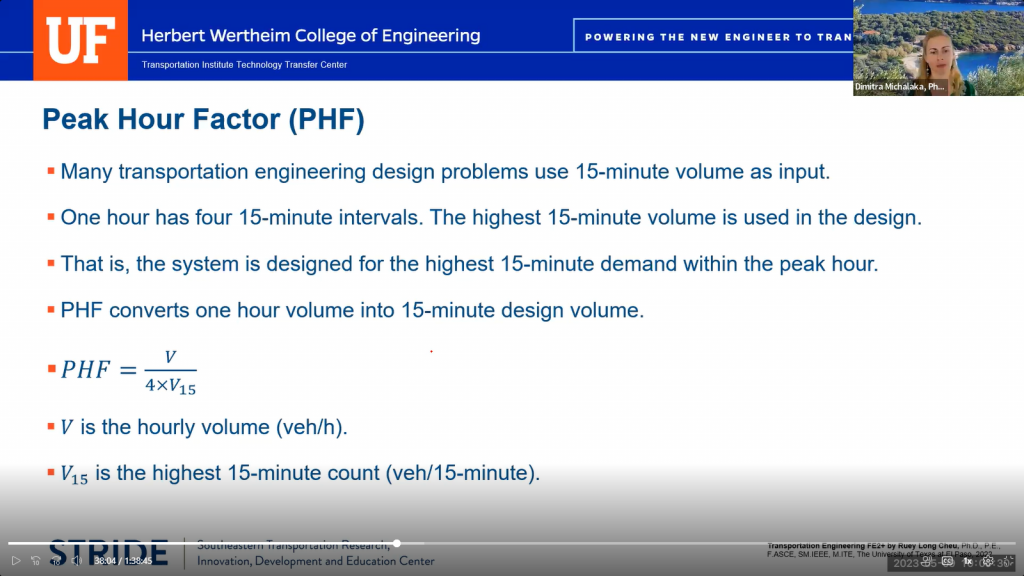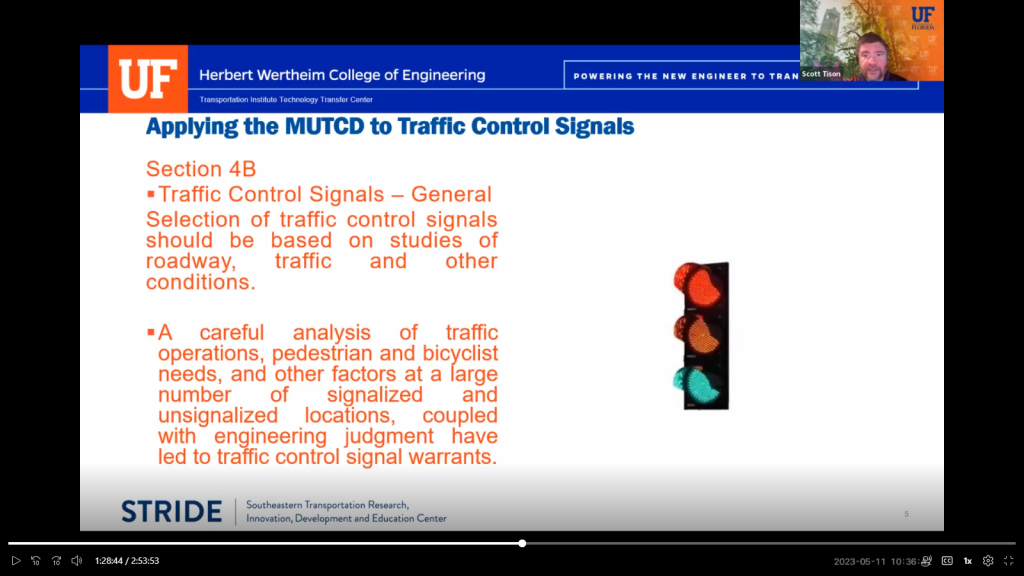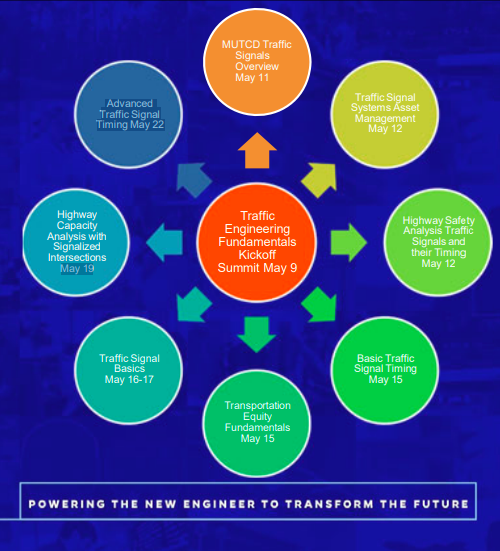By: Ines Aviles-Spadoni, M.S.
Earlier this year, STRIDE spearheaded a project led by Dr. Nithin Agarwal, director of the University of Florida Transportation Institute’s (UFTI) Technology Transfer (T2) Center, which focused on transforming transportation education and practices in the southeastern United States.
The “Transportation Workforce Development Related to Traffic Signal Systems – Phase II (Technology)” project funded by the STRIDE Center was designed to equip transportation students and professionals with the skills to address traffic congestion effectively.
As a significant component of this project, the UFTI’s T2 Center, in collaboration with Dr. Dimitra Michalaka of The Citadel and Dr. Steven Click of Tennessee Technological University, organized the STRIDE Workforce Development Summit. The success of the Workforce Development Summit can be attributed to the thorough planning efforts of the project team led by Dr. Agarwal, which included the collaborators and the T2 team members.
“Our goal in the Summit was to assist transportation agencies in addressing congestion,” Dr. Agarwal said. “It’s a major problem in the Southeast and in other regions.
“Professionals at different points in their career often have different understandings of those problems and the available solutions. We provided instruction in several areas identified by STRIDE researchers to give these professionals a common and up-to-date framework and introduce them to the latest research.”

This event included a series of nine webinars that were held over three weeks from May 9 to May 22, 2023. The webinars provided a platform for transportation experts to share their insights and knowledge on various aspects of traffic signals and intelligent transportation systems (ITS).
The summit featured live instructor-led presentations covering various topics, including traffic engineering fundamentals and advanced traffic signal timing. The curriculum was designed based on the project’s initial phase findings, which helped bridge the gap between existing educational offerings and the practical skills required to manage the Southeast region’s congestion.
“I was pleasantly surprised by the number of synchronous attendees, which gave more opportunity for questions as the training progressed,” Dr. Click said. “Those who were unable to attend synchronously had the opportunity to watch videos of the session – in fact, those videos are still available today.”
The curriculum was developed in collaboration with subject matter experts identified by the project’s team members. The curriculum was organized to progress gradually from basic to advanced. A dedicated website was created for this event, which served as a hub that provided attendees with detailed information about the sessions, instructors, and learning outcomes (https://techtransfer.ce.ufl.edu/training/stride-workforce-development-summit/).

Dr. Agarwal and his team attracted a diverse audience of students, technicians, and working transportation professionals. With a streamlined registration process, the event had many attendees, and the sessions were well-attended. Professional development hour (PDH) certificates were available to participants.
“The positive feedback received from survey responses highlighted the value of the summit in workforce development,” Dr. Agarwal said. “Feedback from participants emphasized the quality and comprehensive nature of the content, the informative presentations, and practical knowledge participants gained by attending this event.”
The STRIDE Workforce Development Summit successfully advanced transportation education and practices. It’s just one more example of how the STRIDE Center works to pave the way for a more efficient and sustainable transportation future in the southeastern United States by disseminating knowledge, fostering collaboration, and addressing traffic congestion challenges.
